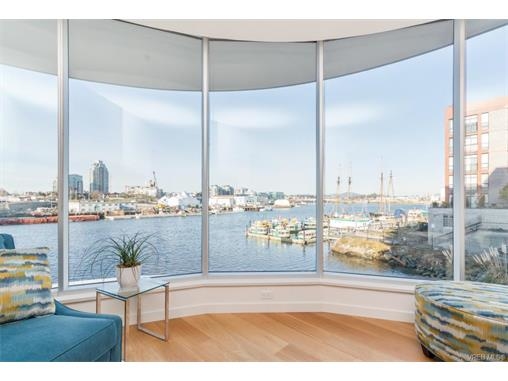If you want to find a new condo while avoiding ever-increasing rent rates, 2024 is the perfect time to start. Real estate investments are almost always a solid purchase, as you get both a space to live in and an investment that historically has trended upwards. If you have the money and the inclination to invest, purchasing a new condo is an excellent idea.
However, when you consider the strong demand, stable mortgage rates, and limited condo inventory, it makes sense that the market is more competitive than ever. Before you take a leap of faith towards homeownership, here are a few things to keep in mind to help you navigate the real estate market in 2024 effectively.
Reasons Why Condos Will Make Good Investments
Ideally, it’s placed in the market cycle to offer a low entry point with a stable path upward in terms of value. Interest rates, which are relevant if you’re financing your new purchase, are also expected to stay low, with the Bank of Canada committed to keeping them down for the foreseeable future. Combine low interest rates with lowered property prices, and you have the perfect mix for real estate investing.
Though the main draw is the reduction in prices, there are other reasons why purchasing a condo is a good call.
One is that you can expect your investment to appreciate rapidly once the pandemic ends. Though economic slowdown has pushed values down, this will rebound quickly when the virus is dealt with, meaning you’ll get a similarly fast return on your investment.
Another plus of investing right now is that you can expect very little in the way of maintenance fees. Unlike owning a home, you won’t have to worry about shoveling the walk or putting more funds into exterior maintenance. Instead, you can pay out some condo fees and get all of this dealt with externally.
Considering the cheap costs, low interest rates, and minimal effort required, the coming year is a great time to get a condo.
Is a Pre-Construction Condo a Good Choice?
A pre-construction condo is a unit that is planned for future construction. Purchasing one involves going off models and prototypes, and comes with advantages and disadvantages. Some aspects to consider are the wait time for the unit to be built and possible changes in stated condo fees and design plans, though the extent to which they can change depends on your sales contract.
It does require a few more hoops and a lot more dealing with the builders, but there are benefits to a pre-construction unit. One is that you don’t have to fight through the vicious reseller’s market.
Rather than get sucked into a bidding war, you can instead lay a stake in a future condo and rest easy knowing that you have a stable, well-priced investment.
Of course, you won’t be able to take advantage of the lowered pandemic prices, but in exchange, you’ll get more time to save for the purchase. If you intend to rent it out, you won’t have to worry about lowered tenant prices.
If you’re looking for a reliable unit at today’s prices that you will use in the future, a pre-construction condo is a good pick. However, it isn’t as dependent on circumstances, meaning you can also wait on the purchase if you want.
Pre-Construction vs. Resale
One area that sometimes differs when it comes to pre-construction versus resale is in the price. While historically pre-construction condos have been priced lower than their pre-sale counterparts, in some markets like Toronto, demand is so high that property costs similarly spike upward. Of course, this depends on the market you’re looking to shop in, with many areas still offering good pre-construction deals.
Another difference in pre-construction is that you have to deal with the builders. You’ll have to know which companies are reputable and be able to assess layouts without an actual space to look at it. You’ll also need a good eye for whether the area seems like it’ll be growing over the next few years.
Resale, meanwhile, may be able to generate money in the short term. You can immediately have an investment and watch it go up, particularly during this pandemic. However, you will have to figure out how to finance it faster, usually in just a few months instead of the year or more you might get for pre-construction.
Also Read: Tips on How to Find a Perfect Place for Your Family in Texas
Factors to Consider When Buying a Condo
A home purchase is many people’s largest life investment. As a result, it pays to factor in as much as you can before committing to such a big decision.
It’s human nature to get attached to things that we see, but like in all business, you shouldn’t let your emotions cloud your mind. If you’re looking for the perfect new condo, there are several elements to consider.
The first is location, which is the most significant factor. Is the area around the condo bustling with life? Is there a scenic view? Most importantly, is the city going to be expanding and growing livelier in the future? These all factor into your condo’s future value, but even beyond money, you want to live in a place that you can comfortably call home. Thus, it’s crucial to find a condo with a community where you can belong.
Price is another major consideration. Of course, you want the nicest condo possible, but many units simply aren’t feasible because of budget constraints. Figure out how much you can pay, then factor in fees and potential price bidding before you even start looking so you don’t waste your time with homes you can’t afford.
An aspect that you might overlook is the rules of the condo. The building board will typically establish guidelines regarding usage of the building, including allowing visitors, providing parking spaces, and opening common areas. Review the rules and make sure they don’t clash with your lifestyle or expectations.
How to Finance a Perfect New Condo
Buying a condo for investment is generally one of the safer plays you can make. However, you still have to figure out financing, which can differ from the traditional rules governing home mortgages. Generally, you will be borrowing money via a mortgage to buy the condo. This means having a down payment as large as possible to cut down on future interest fees.
First, though, you have to ensure that your lender can approve the condo association. This is mostly out of your control and will rely on your condo meeting specific rules regarding insurance, dues, and litigation. Regardless of whether you’re getting financing from a bank, a credit union, or some other source, your loan is dependent on satisfying these requirements.
From there, you want to get pre-qualified. Essentially, you must provide your financial information so the lender can determine how much you’re eligible to borrow. Then, you’ll need to get pre-approved, which again requires financial documentation.
Once you’ve cleared all these steps, you can begin the mortgage application process. This simply means closing on the condo and finally getting access to the money you need to make this big purchase.
Types of Residential Mortgages and Residential Real Estate Financing
While the above covers the general steps, there are different types of residential mortgages, which all work for residential real estate financing, albeit in slightly different ways.
The first is the primary residence mortgage. This is a loan for the home that you intend to live in. Conditions of this type are that the home must be close to your employment place, and you cannot rent it out whatsoever. This mortgage is the easiest to finance and comes with the lowest down payments.
The next option is a second home. Intuitively, this refers to a house that you live in some of the time, like a vacation home. You can rent it out, but there are rules based on the lender regarding how long you have to occupy the place.
Lastly, you have investment properties, which are not intended for personal use, but instead as rental property. This is the most challenging type to qualify for and tends to have the highest down payment requirements.
Why You Should Hire a Qualified Mortgage Professional to Finance a Condo
Financing is critical, but it is simultaneously complex and hard to understand for the average person who isn’t a money expert. You need to find a lender who can provide the payment terms that will suit you, even if you don’t know what that is.
A qualified mortgage professional can help you make the best decision with their skills and expertise.
One significant advantage is the time that you’ll save. A mortgage broker can go through all the different lending companies, compare their terms and rates, factor in hidden costs and fees, and present that information to you in a clear and relevant way. They can also help you qualify for loans. Because they know the lender, they can talk to them and argue your case.
Most importantly, you can expect to save money. Sure, you’ll have to pay for their services, but it’ll pay off when you find the best mortgage deals and when the broker helps you get discounts on appraisals and other fees.
Condo Finances and COVID-19
COVID-19 has dominated the media landscape and the minds of millions for nearly a year. It makes sense as it has led to lock-downs, sky-high unemployment rates, and reduced real estate market activity in many areas.
However, despite all this, there has still been growth in the housing market. Naturally, the pandemic has led to decreases in property prices, meaning that current owners are losing money on their investments. As well, monthly fees still needed to be collected from these owners, meaning that even if they’ve isolated themselves in a smaller space, they’re still paying to maintain their existing units.
The silver lining is that new homebuyers can now get better deals on property than they ever would have been able to in the past. While the outlook remains grim, it doesn’t mean that you have to halt all your condo-purchasing plans. Also, with the vaccine on the horizon, it looks like there will be a rebound in the market soon, bringing financial safety and recovery to all affected, prospective, and current owners alike.


Pingback: 8 Things To Know About Park Slope NYC Neighborhood
Pingback: Frameless Shower Screens Vs. Framed: What Homeowners Prefer